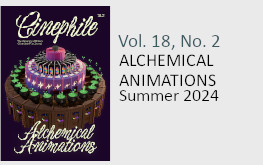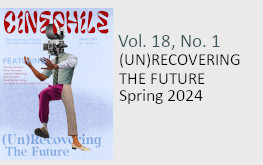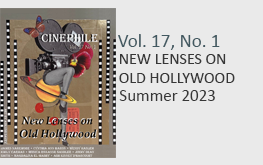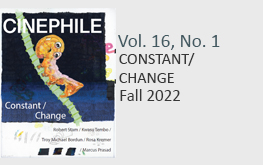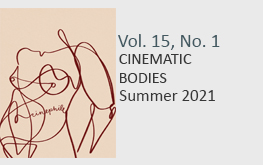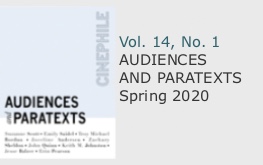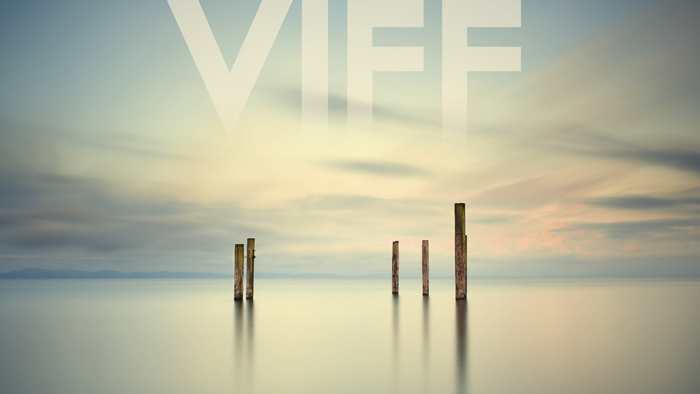
VIFF 2013: Undeniably Super
Suffice to say, no Hollywood superhero films screened at the Vancouver International Film Festival in 2013. Indeed, the festival’s promotional video, which preceded every film, pointedly mocked the bombastic clichés proliferating the marketing of such Hollywood fare, establishing a markedly different aesthetic. Regardless, in keeping with the selected theme of our issue, I undertook a project of exploring the offerings of VIFF 2013 through the lens of thematic intertexts of the superhero blockbuster: what similarities in theme, character, or narrative might emerge? How would similar narratives of heroic fare vary when essayed by non-American filmmakers? How were similar recurring thematic questions of unsanctioned vigilante violence addressed (if at all)? I found a remarkable variety of salient shared features in the least likely of generic offerings, demonstrating the amorphous and adaptable bundle of tropes and themes, which, only when assembled in a particular preordained generic package, constitute the “superhero film” as we know it today.
Blind Detective (Johnnie To, Hong Kong)
The only offering at VIFF to feature a character with an explicit ‘superpower’ of sorts (a blind former police officer [Andy Lau] now equipped with the ability to kinetically ‘relive’ inconclusive crime scenes – indeed, there is a meta joke therein championing actors as the most ‘super’ and beneficial of beings), Blind Detective cranks the tropes and frequent camp of the Hong Kong detective thriller up to 11. While the wildly energetic choreographic spectacles do mirror the similarly balletic action-combat numbers in the average more ‘straightforward’ superhero film, Blind Detective’s goofy irreverence of its own genre staples, lend it a welcome degree of affable self-awareness. A sequel with protagonist Johnson in a no-holds-barred showdown against American equivalent Matt Murdock/Daredevil is a must.
The Dirties (Matt Johnson, Canada)
My personal highlight of the 2013 VIFF programming, The Dirties, through pseudo-documentary insight, demonstrates the potentially devastating outcome that can result from overidentifying with violence-infused Hollywood popular culture (including superhero films). Director/star Johnson inhabits protagonist Owen, a budding high school filmmaker, who attempts to lash back at the school bullies (dubbed “the dirties”) who torment him by casting them in violent revenge fantasies structured around Hollywood intertexts. Of course, in a sadly familiar turn of events, the fantasy violence does not remain fantastic for long, yet the film fearlessly refuses to stop interrogating the importance of differentiating inspiration from Hollywood hero narratives and spectacle violence to seeing fiction and reality as inextricable (the film’s visual motif – Owen’s t-shirt reading “We’re just here for the bad guys” could just as easily serve as a deconstructive mantra for any superhero film). The Dirties serves as a haunting companion piece to any superhero-esq Hollywood fare, and a devastating unraveling of fandom taken to harmful levels.
Lawrence & Holloman (Matthew Kowalchuk, Canada)
An unlikely contender for a superhero intertext, this deceptively dark Canadian comedy nonetheless features an unexpected vigilante narrative, as downtrodden Holloman (Daniel Arnold) regains the will to live through systematically – and increasingly sadistically – punishing incessantly peppy salesman Lawrence (Ben Cotton) in an attempt to beat Lawrence’s obnoxious optimism out of him. While geared more as a contemporary corporate satire, the film nonetheless serves as a key exploration of a character with all of the (almost frustratingly incessant) nobility of a comic book superhero (while rendered, in a more ‘realistic’ fashion, as an aggressive bonehead) subjected to increasingly cringe-worthy torment by a warped antihero, and nonetheless retaining his square-jawed cheeriness and values. Steve Rogers – watching from between his star-spangled fingers – would be proud.
Paradise: Hope (Ulrich Seidl, Germany)
One of the most achingly credible films at the festival, the conclusion to Seidl’s Paradise trilogy, set at a secluded weight loss camp, initially straddles the line between incisive critique and burgeoning ‘heroic’ character study. Viewing with a more traditionally Hollywood-fuelled mindset, I found myself half-expecting thoughtful protagonist Melanie (Melanie Lenz) to lead her fellow dieters in a One Flew Over the Cuckoo’s Nest style uprising against their coaches and captors, emerging not as the hero that a group of obese teenagers might want, but the hero they need. Instead, the film opts for a tranquil yet fiercely observational character study bursting with muted emotion, as Melanie develops a bizarre and almost reciprocated crush on the camp’s doctor (Joseph Lorenz), and lashes out in bursts of rebellion, sneaking snacks, and escaping the camp to go dancing at a local bar. Despite whiffs of Scott Pilgrim vs. the World style unassuming heroic focalizing, Melanie remains instead a teenage girl – unsure and ever-changing, and is all the more likeable for it. Plus, I dare you to find a more memorable conclusion than a group of teenagers resentfully chanting, “If you’re happy and you know it, clap your fat.”
The Rocket (Kim Mordaunt, Laos)
Any American superhero, from Bruce Wayne to Peter Parker, would be hard-pressed to match the childhood suffering 10-year-old protagonist Ahlo (Sitthiphon Disamoe) is subjected to. A slew of bad luck in Ahlo’s life, including the death of his mother in a mass evacuation, leads to him being branded as cursed, and shunned by his local community. Despite this dour beginning, The Rocket is a fundamentally uplifting and exhilarating film, as Ahlo attempts to rebrand himself as a rallying point of uplift for his desolate community by attempting to win a local rocket-building contest. What follows is a populist journey that exceeds any Hollywood training montage in both vivacity and honesty, as Ahlo scrounges together any bit of local wisdom (including ingenious use of guano and human urine alike) to create the rocket of his dreams. At the risk of unavoidable cliché, The Rocket demonstrates that a small, fiercely determined Laotian boy can conjure up more heart and determination than virtually any comic book underdog.
Whitewash (Emanuel Hoss-Desmarais, Canada)
Whitewash immediately provoked a superhero intertext for me by its starring the former Sandman from Spider-Man 3 (Thomas Haden Church). This French-Canadian film, despite being promoted in the “action, thrills, and suspense” section of the VIFF catalogue, engages more with the spectacle of inaction (although viewer attention is retained throughout through aggressive sound editing, particularly the repetitive clanking of snowplow tires). The film, with a hefty dose of Coen brothers-fashioned dark irony, equally engages in the after-effects of enacted violence experienced by a central character, who, in generic terms, is effectively the villain. Church’s widower snowplow driver drunk-drives his plow into the middle of a snowy forest, and proceeds to languidly seek supplies that will allow him to survive in the middle of the woods, with only time and non-sequential chronology finally revealing the motivation behind his actions. If many of the films aforementioned VIFF offerings explore unconventional heroism in unlikely contexts, Whitewash disentangles the morality of a purported villain, community violence and lawbreaking, finding its protagonist nearly impossible not to empathize with, or, largely due to Church’s gravel-voiced grumbling, affectionately take to.
About VIFF: We would like to extend thanks to the staff and volunteers at VIFF for their support. The following information is quoted from VIFF’s website, VIFF.org.
Both in terms of admissions and number of films screened (130,000 and 341 respectively in 2013) VIFF is among the five largest film festivals in North America. We screen films from 75 countries on nine screens. The international line-up includes the pick of the world’s top film fests and many undiscovered gems.
Three main programming platforms make our festival unique: we screen one of the largest selections of East Asian films outside of that region, we are one of the biggest showcases of Canadian film in the world and we have a large and vibrant nonfiction program.
Attracting a large, attentive and enthusiastic audience the festival remains accessible, friendly and culturally diverse. As the critics say, VIFF is very much a festival “designed for the benefit of people who love films and people who make them.”
Image courtesy viff.org

